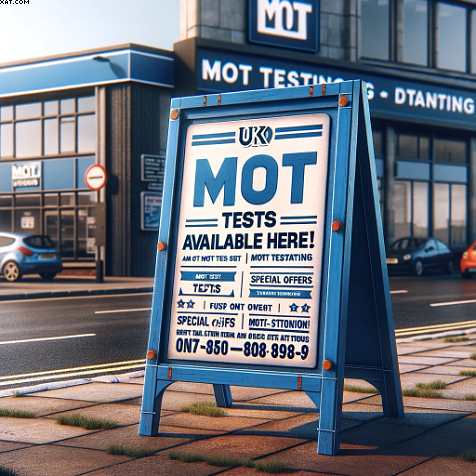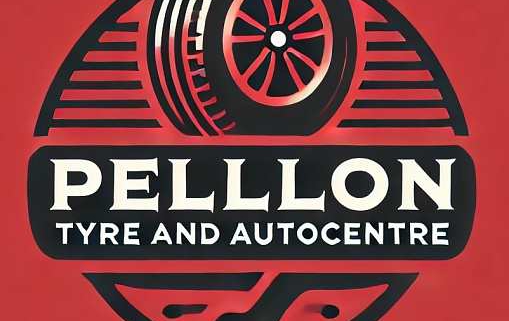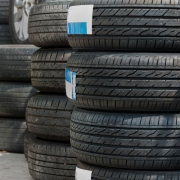MOT Changes and DBS Checks
MOT Changes and DBS Checks

MOT Changes and DBS Checks
MOT Changes and DBS Checks – Keeping Halifax Drivers Safe at Pellon Tyres
(A customer-friendly update from Pellon Tyre & Autocentre, Halifax)
Things never stand still in the motor trade, and lately it feels like every time I nip into the office for a brew, there’s another update from DVSA or someone in government. As testers here at Pellon Tyre & Autocentre, we’ve always taken pride in doing things by the book, and with the latest run of MOT changes and discussions about staff vetting, it felt like the right time to put everything into one simple update for our customers in Halifax, Illingworth, Siddal, and the surrounding Calder Valley.
Let’s start with the MOT changes that matter most.
Tyres & TPMS – Small but Important Tweaks: MOT Changes and DBS Checks
From 11 August 2025, TPMS checks will no longer apply to:
-
Motor caravans
-
Ambulances
-
Hearses
-
M1 vehicles over 2,500kg
So if you’re driving a campervan up to the Dales or down to the seaside, TPMS won’t form part of the MOT. But your tyres still need to be in good nick — and that’s where we come in. You can always pop in to see us at Pellon Tyres or check the official guidance here:
🔗 (gov.uk – MOT Inspection Manual)
And of course, all our tyre services are here:
👉 www.pellontyres.co.uk
Brake Tests – Clearer Guidance for Testers: MOT Changes and DBS Checks
DVSA has tightened the MOT manual wording around brake testing so every garage across the country works to the same standard. The updates include:
-
When to use roller brake testers vs decelerometers
-
Special rules for some 4x4s
-
Extra checks around the Applied Parking Brake (APB)
-
Making sure measurements are properly recorded in MTS
Nothing scary — just clearer instructions, which help us deliver an accurate and fair test every time.
Seats, Belts & ISOFIX – Tidying Up the Rules
A few practical updates include:
-
Lifting folded seats where possible
-
Clarifying occasional seats vs everyday folding rear seats
-
Better inspection guidance for ISOFIX and belt webbing
Again, more clarity than change — but it all helps keep families safe on Yorkshire’s roads.
Diesel Emissions – A Key Change for Newer Cars: MOT Changes and DBS Checks
One of the biggest updates affects diesel opacity values.
If a diesel has an extremely low plated smoke value, testers must now:
➤ Add 0.05 to the plated value before testing
This stops newer diesels from failing borderline tests simply through machine tolerance. With the number of modern diesels we see around Halifax, Mixenden, and Ovenden, this little tweak will save a few headaches for drivers.
Crackdown on MOT Fraud – Photo Evidence Coming In
DVSA are pushing hard against “ghost MOTs” — passes issued without a vehicle ever entering the bay. To combat this, they’ve started rolling out a requirement for MOT testers to take a live photograph of the vehicle during the test.
It’s not compulsory for every garage yet, but the writing’s on the wall:
👉 Photo evidence will likely become standard in the next couple of years.
For us at Pellon, we say crack on — we welcome anything that promotes honest testing.
DBS Checks – Already Completed at Pellon Tyres: MOT Changes and DBS Checks
There’s been a lot of chat lately in the trade about vetting MOT testers and raising the bar for honesty and professionalism in the industry. Some garages have already started doing voluntary staff checks to show transparency.
So here’s something important for our customers:
⭐ Every member of our MOT management team at Pellon Tyres has already had a DBS check.
We did this proactively — not because DVSA forced it, but because we believe customers deserve complete confidence in the people working on their vehicles.
DBS checks simply confirm that:
-
You’re dealing with trusted staff
-
Our MOT management team meets high professional standardsWe’re prepared for whatever future DVSA requirements may come
It’s all part of our commitment to honest, straightforward MOT testing — the kind our Halifax customers expect and deserve.
New Jacking Rules (April 2026)
From 1 April 2026, any garage installing or upgrading a Class 4 MOT bay will need:
-
A minimum 2-tonne safe working load
-
A 1,700mm minimum pad spacing
This is mostly to accommodate heavier EVs and SUVs.
Good news for us—our existing bays are already DVSA-approved, so unless we upgrade, we’re good to go.
No Change to First MOT – Still 3 Years
Despite all the talk, the Government has stuck with:
✔ First MOT at 3 years
✔ Then every year after
A sensible decision, especially considering how many faults we find on 3–5-year-old cars around here.
Useful Links (for those who like the technical bits)
-
MOT Manuals & Notices: gov.uk
-
DVSA Matters of Testing Blog
-
Pellon Tyres MOT Booking: www.pellontyres.co.uk
-
Lucky Paws Holiday Home (our caravan, open spring–autumn): https://luckypawsholidayhome.co.uk
🔧 In Plain Terms for Halifax Drivers
-
MOT rules are tightening, but nothing dramatic
-
Diesel testing becomes fairer
-
Brake and seatbelt checks clarified
-
Photographs during MOTs likely coming soon
-
Pellon Tyres staff are already DBS checked
-
Your MOT test remains fair, honest and by the book — as it should be



